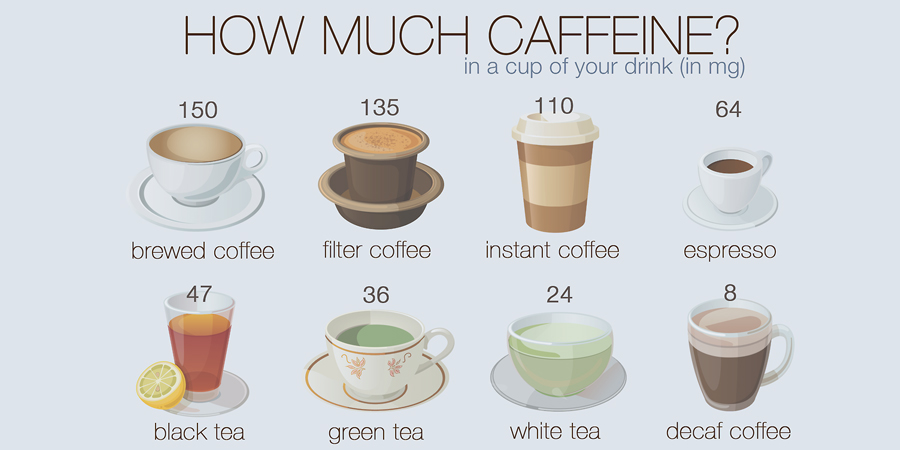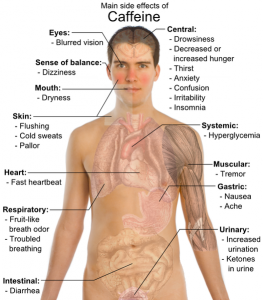The main physiological effects of coffee come from the caffeine, which is made desirable by subtle flavor notes. Caffeine is a bitter substance, and accounts for 10-30% of bitterness detected in coffee. Coffee has physiologically beneficial qualities attributed to its variety of lipids, alkaloids, minerals, acids, and other substances, but most of what we physiologically desire is the caffeine. As well as caffeine, minute amounts of related purine alkaloids, theobromine, and theophylline are present in the coffee bean. Various other alkaloids have been recently found particularly in arabica and robusta species. Among these alkaloids is theacrine, which has been studied and found to be an efficient solubilising agent for many carcinogenic substances. Chlorogenic acids are found in relatively high amounts in coffee, and differences in taste and pharmacological activity have been recorded. Ingestion of 200mg of chlorogenic was found to stimulate stomach secretion and enhance hydrochloric acid production. “This effect has also been attributed to an irritation of the stomach mucosa produced by chlorogenic acid or by its phenolic derivatives formed during roasting, and explained by there tannin-like nature.” (Coffee Physiology Volume 3)
“Caffeine is the most commonly used psychoactive substance in the USA (James 1991). It is estimated the more then 80% of children and adults in North America habitually consume caffeine and that average daily consumption is 280mg (Barone and Roberts 1996).” (Subjective, behavioral, and physiological effects of acute caffeine in light, nondependent caffeine users. Volume 185, Issue 4). For those who are not regular coffee drinkers, as little as 30mg of caffeine can alter mood and alertness, improve reaction times, and vigilance performance. There are controversial studies surrounding the direct effect of consuming caffeine. Some researches argue that there is no benefit of consumption of caffeine on nondependent humans, but that the apparent effects of caffeine that occur reflect withdrawal reversal. Regular caffeine consumers experience altered mood and behavior that is reversed by caffeine consumption, and that the caffeine just restores normal functioning. Studies show that observed affects of caffeine could be a combination of withdrawal alleviation and direct pharmacological effects.
Subjective, behavioral, and physiological effects of acute caffeine in light, nondependent caffeine users. May 2006, Volume 185, Issue 4, pp 514-523. Emma Childs, Harriet de Wit. University of Chicago.
Assigned to Yarden
Written by Yarden
Edited by Yarden


